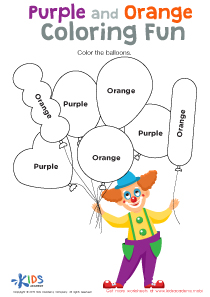Vocabulary enhancement Easy English for Beginners Worksheets for Ages 3-5
5 filtered results
-
From - To
Discover our "Vocabulary Enhancement Easy English for Beginners Worksheets" designed specifically for ages 3-5! These engaging and interactive worksheets are perfect for young learners embarking on their English language journey. Each activity aims to boost vocabulary through playful exercises, colorful illustrations, and simple, relatable themes. Whether it's naming everyday objects, matching words with images, or practicing rhymes, our worksheets make learning fun and effective. Tailored for ESL students, these resources foster language comprehension and encourage early reading skills while keeping children engaged and curious. Start your child's path to language proficiency with our expertly crafted materials today!
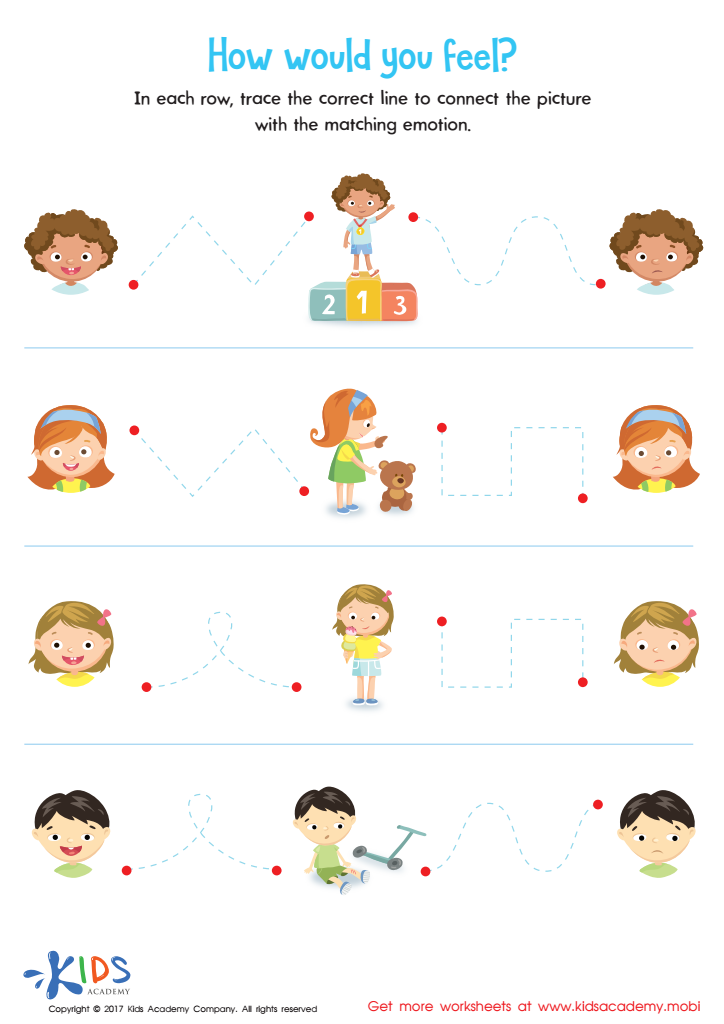

Feelings and Emotions Worksheet
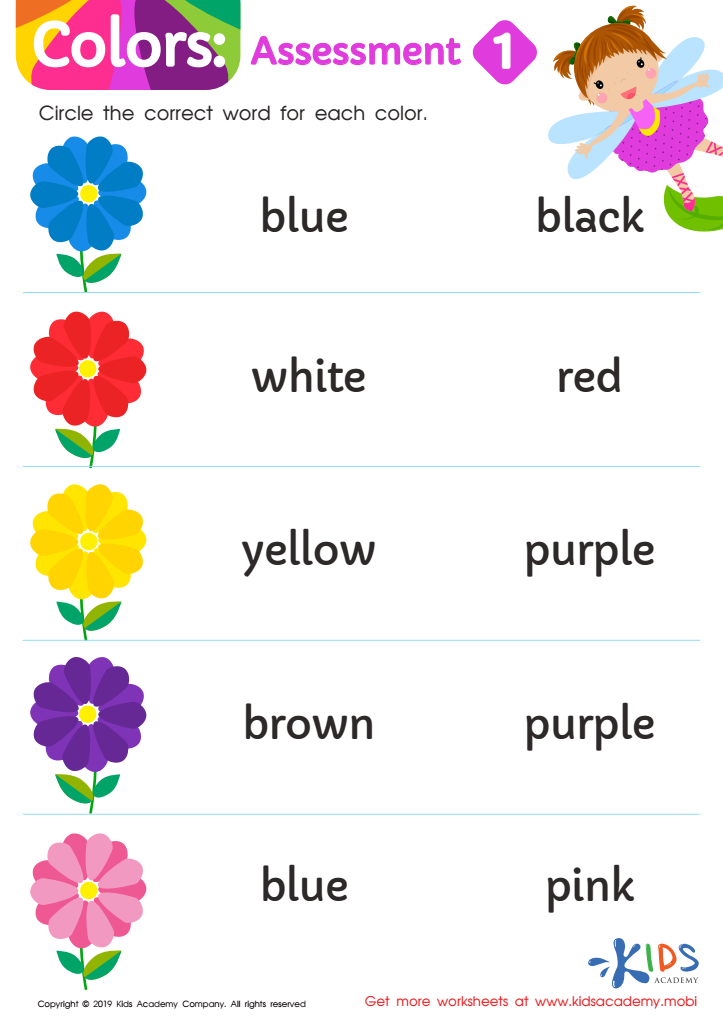

Colors: Assessment 1 Worksheet
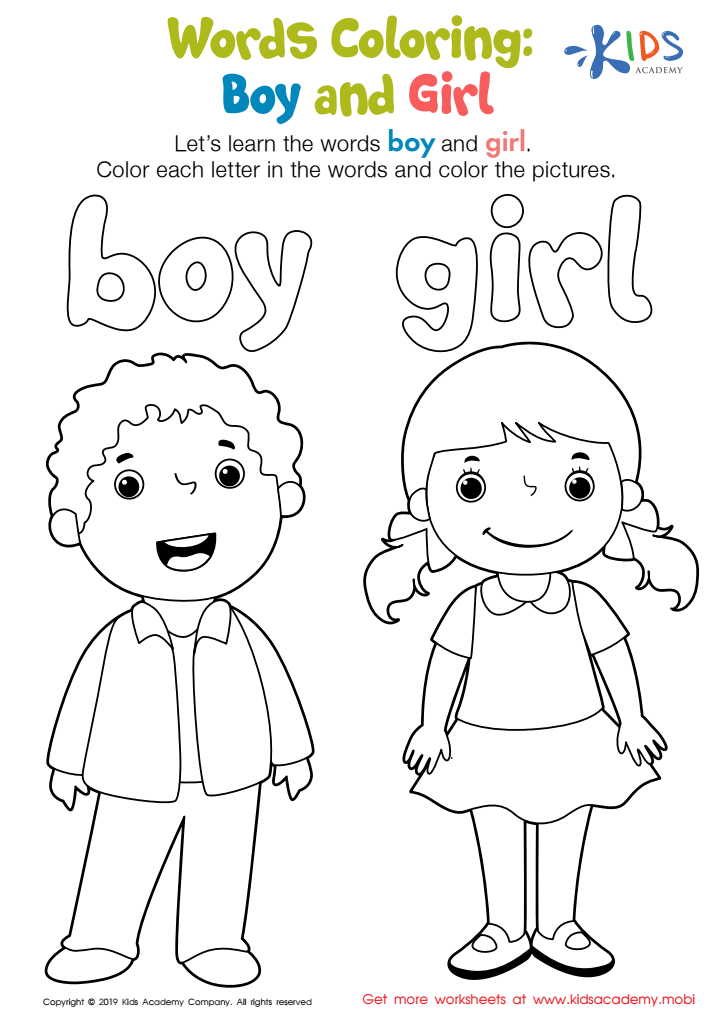

Boy and Girl Words Coloring Worksheet
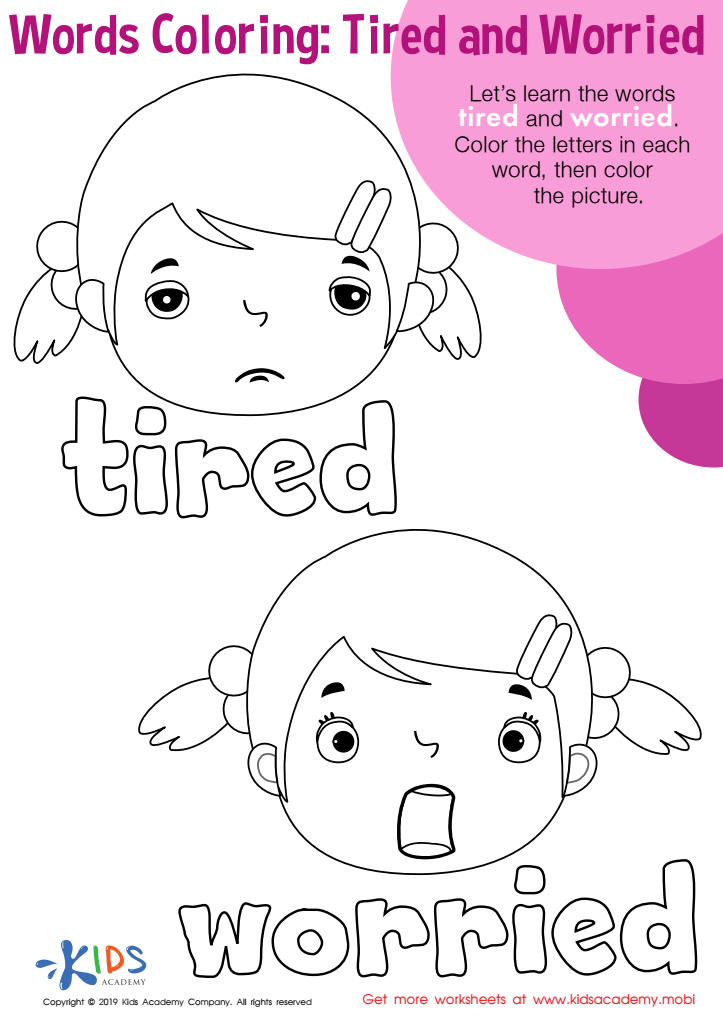

Tired and Worried Words Coloring Worksheet
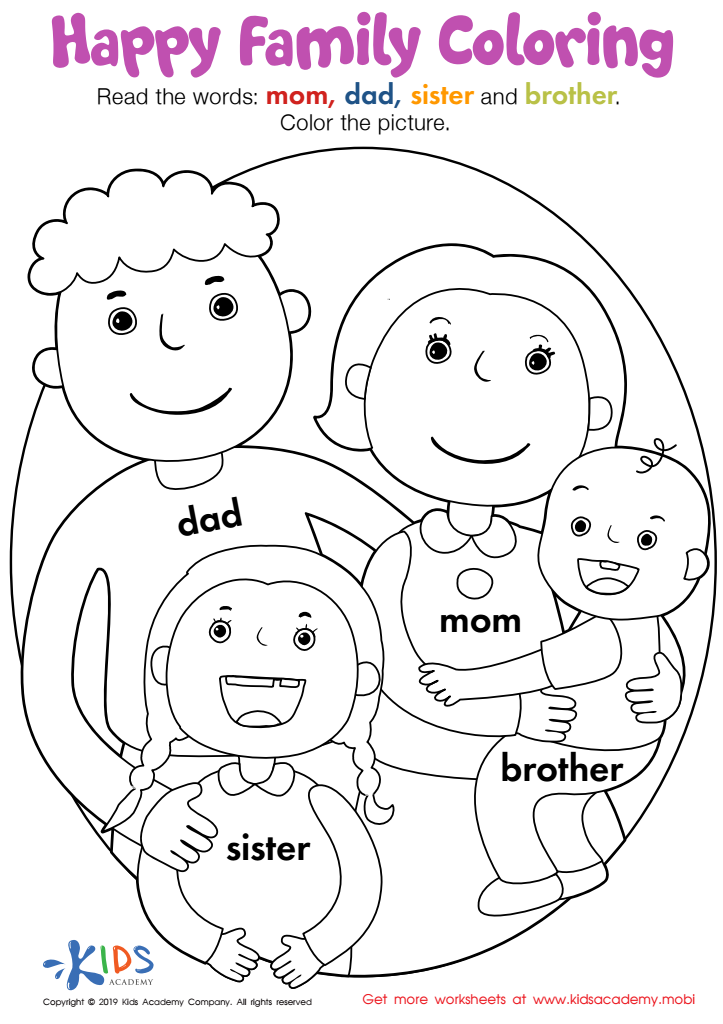

Happy Family Coloring Worksheet
Vocabulary enhancement is crucial for children aged 3-5 as it lays the foundation for lifelong learning and communication skills. During these formative years, children experience rapid brain development, with an explosion in their ability to understand and produce language. Parents and teachers should care about providing easy English vocabulary enhancement approaches for several reasons.
Firstly, a rich vocabulary helps children articulate their thoughts and emotions, fostering better communication. This ability to express themselves effectively reduces frustration and enhances social interactions with peers and adults alike.
Additionally, vocabulary knowledge is closely linked to literacy skills; a broader vocabulary boosts reading comprehension, enabling children to enjoy and understand stories, which is vital for academic success. Early exposure to vocabulary enhancement also nurtures cognitive development and critical thinking skills, as children learn to make connections between words and their meanings.
Incorporating fun, interactive activities such as songs, games, and storytelling into vocabulary instruction keeps children engaged and motivated. Ultimately, parents and teachers who prioritize vocabulary enhancement provide a supportive environment that prepares young learners for a successful educational journey, instilling a love for language, learning, and communication.
 Assign to My Students
Assign to My Students









